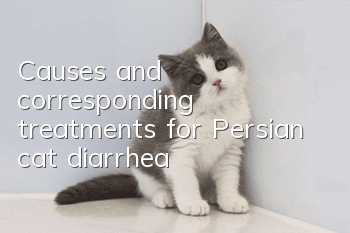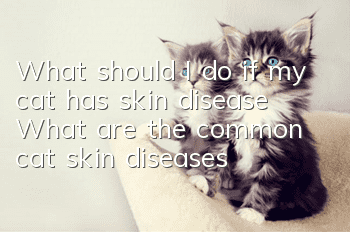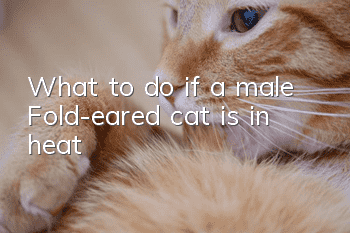Causes and corresponding treatments for Persian cat diarrhea

What should I do if a Persian cat has diarrhea? Persian cats are known as the aristocrats of cats. They always look at their owners with a pampered attitude. So what should you do if your delicate Persian cat has diarrhea?
1. Food issues
1. Feeding too much
Don’t think that the more a cat eats, the better. Some cats always have a “no-no” attitude towards food, and their goal is to finish all the food in the food bowl. If cats eat too much, they will also have food accumulation in their stomach, which is mainly manifested by symptoms such as loss of appetite, anorexia, abdominal swelling, etc. Some cats may even have a rise in body temperature.
Countermeasures: For foody cats who cannot control themselves well, owners should not put too much food in the food bowl at one time, and it is best not to use automatic feeders, because when cats feel like they want to stop, they actually Already very supportive. If you need to go out for a whole day, you can put the cat food in two food bowls, but do not put the two food bowls together. You can put one in the kitchen and the other in the corner of the living room, so that the cat can easily You will less likely have the problem of eating too much at once.
2. The food is not fresh
If cat food (especially wet food) is exposed to the air for too long, it is likely to go bad. Once eaten by cats, they will suffer from diarrhea.
Countermeasures: In order to ensure the freshness of food, the owner must do a good job in food storage. Dry food should be placed in a sealed bag or box, while canned food that is not eaten at one time should be sealed with plastic wrap and placed in the refrigerator. In addition, in the summer, owners must clean the kitchen trash can in time, because cats are easily attracted by the smell of food left in the trash can, and due to the high temperature, the food will deteriorate in a short time, but cats People don't know this, so they become a member of the diarrhea camp after eating a lot.
3. Eating poisonous food
Cats can swallow anything they think is reasonable. Even some items that we think are not even food can be swallowed in one bite. Doctors at pet hospitals often encounter cats that have eaten poisonous food. For these cats, they are lucky to only have diarrhea. Some cats will eventually die because the food they eat is too toxic or they cannot receive timely treatment. .
Countermeasures: Toxic food rarely appears in ordinary households, so owners only need to keep pesticides and other pesticides in the home that may be toxic to cats. In addition, lilies and other plants can also be poisonous to Persian cats, and owners need to keep these plants out of the reach of cats.
Lily, narcissus, dieffenbachia, hyacinth, pothos, and aloe vera will cause diarrhea or allergy symptoms to cats if they eat them. Never let cats eat plants such as lilies, narcissus, and dieffenbachia. Cats are likely to die if they eat them. If you want to grow some plants, you can choose spider plants, begonias and rosemary.
4. The food lacks certain nutrients that cats need
For owners who cook for their cats, it is easy for the food to lack the nutrients that cats need. Once cats lack certain vitamins or trace elements, they will not only have diarrhea, but some cats may even develop pica. Case.
Countermeasures: In fact, even if cats only eat cat food, they will not suffer from any malnutrition, because the nutrients contained in cat food can fully meet the needs of cats. On the contrary, owners who prepare food for their cats must do their homework in advance to ensure that the food contains sufficient amounts of various nutrients that cats need. In addition, it is best not for the owner to let the cat eat the food on his own table. This is a commonplace topic, but in real life, many people still give their leftover food to the cat. Doing so will cause the cat to appear. Two problems: 1. Cats lack certain vitamins and trace elements, and some cats will eat different foods because of this; 2. Due to the high oil content and salt content of human food, cats will develop urinary system diseases, etc.
2. Disease issues
1. Intestinal parasites
The intestinal parasites that Persian cats are susceptible to mainly include roundworms, tapeworms, hookworms, etc. Cats infected with parasites may not have obvious symptoms for a long time, but after a long time, the cats will become thin and some Cats may also eat strange food. If a kitten is infected with parasites, it can also cause developmental delays.
Countermeasures: Owners must deworm their cats regularly. Especially for semi-free cats, frequent outings make them more likely to be infected by parasites, so deworming is one of the tasks that every owner must do every year. For domestic cats, owners should not take it lightly, as eggs may be stuck on your shoes and brought home. Cats may also be infected with parasites when biting them, but this possibility is low.
2.Gastroenteritis
There are many causes of gastroenteritis in Persian cats, such as eating food just taken out of the refrigerator, cats catching cold due to a drop in temperature, etc.
Countermeasures: During the daily maintenance of cats, pay attention to avoid giving them cold food, and do not let them drink ice water directly even in summer. When the temperature drops, it is necessary to keep the cat's nest warm in time. It is best to open the air when necessary.Adjust the heat or heat to ensure that the cat does not catch a cold. In addition, if the cat's diet is irregular, it will also lead to the occurrence of gastroenteritis. Therefore, the owner should feed the cat regularly and should not change it easily once a pattern is formed.
3. Cat plague
Also known as feline infectious enteritis and feline panleukopenia. After young cats are infected with feline distemper, they usually die suddenly without showing any symptoms; when adult cats develop diarrhea, it means that the disease has entered the late stage, and some cats will die. However, generally, cats will experience vomiting, anorexia, and lethargy before diarrhea, so it is easy for owners to pay attention to it.
Countermeasures: For similar infectious diseases such as cat plague, owners can prevent them by vaccinating them. Normally, cats need to be vaccinated once a year. If they are bitten by other animals, you have to take your cat to the pet hospital for a booster vaccination.
- How to choose the most correct and suitable cat food for Siamese cats?
- What does it look like when a Fold-eared cat is in heat?
- How to assist in delivery if a cat cannot give birth
- Symptoms before death in cats with abdominal distension
- Cat urinary tract crystals
- How to raise a 3-month-old kitten
- What causes feline calicivirus
- The cat vomited several times a day
- Can cats with poor gastrointestinal problems eat dried fish?
- Can garden cats eat scrambled eggs with onions?



